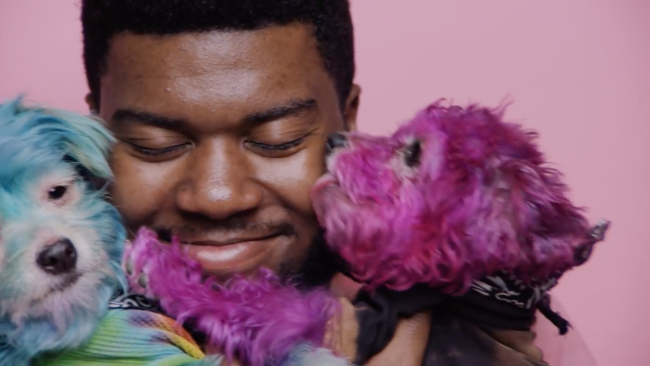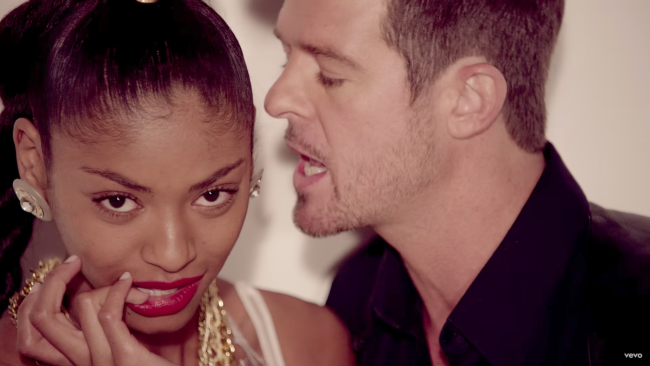You should watch Charlie XCX’s new music video, “Boys”.
Yes, it’s a chance to spot your favorite male artists, but it’s also a refreshing look at masculinity through the lens of the female gaze. We’re familiar with the usual shots: able-bodied women with slim waists and perfect skin staring seductively into the camera, lavishing the male artist with attention, moving their scantily-clad bodies.
Charli XCX’s got a different idea, though. Charli XCX said in a recent interview with BBC Radio 1 that she wanted to “flip the male gaze on its head”, but her music video does so much more than just sexualize men. Charli XCX dismantles traditional masculinity through the female gaze.

Sure, the music video shows off a shirtless Cameron Dallas wielding a chainsaw in all his macho glory, but it also shows men performing what are usually seen as feminine activities and behaviors, such as having pillow fights, peering seductively into the camera, taking care of babies, washing dishes, and erotically eating food. This behavior is also not portrayed as comedic or humiliating, but as genuinely sexy. The viewer is never meant to be laughing at them. The men in the music video aren’t performing excessive masculinity or exaggerated non-masculine behavior that’s intended to look ridiculous and that’s okay. “Boys” affords us a look at men without testosterone goggles on. “Boys” catches the men in moments of genuineness, vulnerability and carefreeness.

Through Charli XCX’s lens, we see what she finds sexy and that’s, well, pretty much anything.
Broadly speaking, tide seems to be turning, too, as female artists retaliate by taking on female empowerment and the subversion of the male gaze, including Marina and the Diamonds in “How to be a Heartbreaker” and Britney Spears in “Make Me”. Most notably, Jennifer Lopez, in her music video “I Luv Ya Papi”, calls out the way men constantly objectify women in music videos and presents an alternate scenario in which the roles are reversed. The viewer is treated to scenes of perfectly toned men posing seductively, washing cars, and serving women.

While “I Luv Ya Papi” does reverse roles by showing the men as submissive to the women, the men’s perfectly toned bodies and sultry looks still invoke the image of traditional masculinity.
There’s also a popular parody of Robin Thicke’s “Blurred Lines” called “Defined Lines”. “Blurred Lines” shows its female models dancing around in white underwear. One woman bites her fingers seductively and gets held by her braid like it’s a leash. Another lights a cigarette for Robin Thicke and then gets smoke blown into her face. “Defined Lines” parodies Thicke’s music video by giving the power to the women; it’s the men giving massages, crawling around on leashes, and eating dessert off a plate on the floor.


While the parody’s replacement of the women in the original music video with men reveals just how dehumanizing the treatment of the women in “Blurred Lines” are, it also relies on the viewer’s image of traditional masculinity. The images the parody create contrasts so much with convention ideas of how a man should act that it comes off as comedic and slightly repulsive.
Sexy isn’t just brawny, nearly naked bodies on display. It’s Brendon Urie lying on a bed of rose petals, Fred MacPherson smashing his guitar, and Khalid hugging colorful puppies. It’s Flume and A.G. Cook reading books, Ezra Koenig brushing his teeth, and Jay Park falling backwards into a ballpit.
After all, boys will be boys, whatever kind of boy they choose to be.
(images: screencaps)
Jenny Cheng is a co-founder of FanMail, the subscription box for lady geeks. You can find her on Instagram, Twitter, and Facebook.
Want more stories like this? Become a subscriber and support the site!
—The Mary Sue has a strict comment policy that forbids, but is not limited to, personal insults toward anyone, hate speech, and trolling.—









Published: Aug 8, 2017 02:24 pm